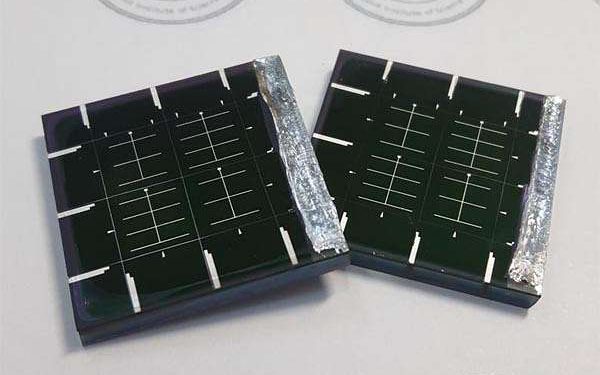DGIST research team advances eco-friendly solar cell efficiency using rapid temperature control
by Riko Seibo
Tokyo, Japan (SPX) Oct 28, 2025
Research led by Dae-Hwan Kim and Kee-Jeong Yang at DGIST, in collaboration with Junho Kim from Incheon National University, has developed a technique to improve the efficiency of antimony selenide (Sb2Se3) solar cells. The method involves raising the heating rate during material thermal processing, which produces more uniformly aligned crystals and fosters efficient charge transport.
Antimony selenide is composed of antimony and selenium, making it an environmentally safe choice for solar cell manufacturing. Traditional devices using this material face efficiency limitations due to defects and uneven crystal orientation, which restrict electron and hole movement.
The team discovered that faster thermal processing supports orderly crystal growth and reduces defects. Analytical methods, such as scanning electron microscopy (SEM), X-ray diffraction (XRD), ultraviolet photoelectron spectroscopy (UPS), admittance spectroscopy, and STEM-EDS, confirmed that gradual temperature increases result in defective, randomly oriented crystals. In contrast, rapid heating produces uniformly grown crystals, allowing smoother electron flow.
Kee-Jeong Yang announced, “This study provides a clue to addressing one of the key limitations of antimony selenide solar cells, namely, the issues of crystal orientation and structural defects. By simply controlling the crystal growth rate at the early stage of the fabrication process, we can maximize the material’s potential. This is expected to greatly contribute to future commercialization and the development of large-area modules.”
The research was performed with Jaebaek Lee and Bashiru Kadiri-English as co-first authors. The work received support from several Korean government programs and was published in the Journal of Materials Chemistry A, with selection as the Inside Front Cover.
Research Report:Effect of crystal growth rate on crystal direction, defect formation, and photovoltaic performance of Sb2Se3 thin-film solar cells
Related Links
DGIST (Daegu Gyeongbuk Institute of Science and Technology)
All About Solar Energy at SolarDaily.com
















